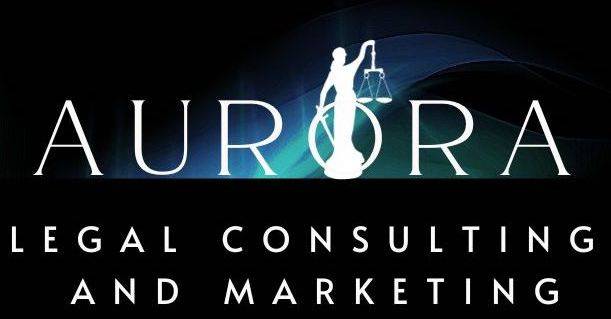Legal Marketing Services
- Home
- Services
A Comprehensive Guide to Elevate Your Law Firm’s Online Presence: Strategies for Attorneys
Website Development: Building a Strong Foundation
In digital marketing for attorneys, the significance of a highly detailed and well-thought-out Legal Website Design for Attorneys cannot be overstated. Creating an online presence involves adding important content to ensure your legal website stands out and captivates and engages visitors effectively. Responsive design is like the foundation of a building—it adjusts effortlessly to different devices and screen sizes, making it easier for people to access and use the website. Making the law firm’s website adaptable improves access and guarantees users a good experience, regardless of their device. It’s crucial to have easy-to-follow navigation to keep visitors interested. This means using clear menus, organizing content smartly, and having a good search function. This simple navigation keeps users engaged and helps your website show up more on search engines, boosting its visibility on search result pages. Content creation is another pivotal aspect of website development. Crafting informative, keyword-rich content establishes your authority in the legal domain and improves search engine rankings. Implementing a well-structured content strategy, complete with compelling meta descriptions, title tags, and strategically placed keywords, enhances the discoverability of your legal services. Developing a robust legal website involves harmonizing responsive design, intuitive navigation, and compelling content creation to foster a strong online foundation. This approach ensures your website grabs people’s attention and tells more people about your legal expertise.User-Friendly Navigation
Explore why easy navigation is important. Organizing content well, using simple contact forms, and making your website fast makes users happy. Easy navigation makes the website more user-friendly and helps it show up better on search engines, making your legal services easy for people to find.Content Creation: Crafting Compelling Narratives
Captivating content creation is the heart of any successful online marketing strategy. Explore the art of storytelling and learn how to create engaging blog posts, informative articles, and captivating visuals that resonate with your audience.
Storytelling for Engagement
Master the art of storytelling, a powerful tool for attorneys. Craft compelling narratives that educate your audience while establishing a connection, building trust, and enhancing credibility. Incorporating interactive elements like quizzes or polls in content and utilizing case studies to showcase successful client outcomes are effective engagement strategies. These techniques convey information and create an immersive experience for your audience.Visual Content: The Power of Infographics and Videos
Unlock the impact of visual content in the legal industry. Infographics and videos can convey complex legal concepts in an easily digestible format, contributing to a more engaging online presence. Implementing multimedia content to cater to varied audience preferences and collaborating with industry influencers for guest contributions further enriches your content strategy.Social Media Marketing and Management: Connecting with Your Audience
Social media is a powerful tool for attorneys to connect, build relationships, and showcase expertise. Dive into the essentials of social media marketing, from choosing platforms to crafting engaging posts.Choosing the Right Social Media Platforms
Explore the diverse landscape of social media platforms and identify the ones that align with your target audience. Utilizing targeted paid advertising on social media platforms and conducting live Q&A sessions to engage directly with the audience are effective strategies to maximize your reach. Selecting platforms based on your specific legal expertise ensures your message reaches the most relevant audience.Crafting Engaging Social Media Posts
Learn the art of creating compelling social media content. Attention-grabbing headlines, visually appealing graphics, and participation in relevant legal forums and groups for networking are key elements that make your posts shareable and memorable. Analyzing social media analytics helps you refine your content strategies for optimal engagement. Regularly adapting your approach based on analytics ensures continued relevance and resonance.Email Marketing:
Nurturing Client Relationships
Unlock the potential of email marketing to nurture client relationships and drive conversions. From building a responsive email list to creating personalized campaigns, explore the ins and outs of effective email marketing for attorneys.

Building a Responsive Email List
Discover strategies for building a quality email list. Segmentation and personalization, coupled with implementing A/B testing for subject lines and email content, allow you to tailor messages that resonate with specific client needs. This personalized approach enhances engagement and conversion rates. A well-maintained and segmented email list ensures that your communications are relevant to each recipient, fostering a stronger connection.Creating Compelling Email Campaigns
Delve into crafting email campaigns that resonate. Effective copywriting, compelling visuals, and strategic calls to action are fundamental. Utilizing drip campaigns for a targeted and automated approach, as well as integrating email marketing with CRM systems for streamlined communication, further enhances the impact of your email campaigns. Crafting campaigns that address specific client pain points and needs strengthens your position as a valuable legal resource.Conversion Marketing: Turning Prospects into Clients
Conversion marketing is the key to turning website visitors into clients. Explore tactics such as A/B testing, optimized landing pages, and persuasive copywriting to enhance your conversion rates and grow your legal practice.A/B Testing for Optimization
Learn how A/B testing can refine your online marketing strategies. Testing different headlines, calls-to-action, and elements allows for data-driven decisions that improve conversion rates. This strategy, combined with personalization and targeted approaches, contributes to a more effective conversion process. Regular A/B testing ensures your conversion strategies are optimized based on real-time user behavior.Crafting Persuasive Landing Pages
Explore the elements of high-converting landing pages. From compelling headlines to persuasive copy, understand how to create landing pages that guide visitors toward taking the desired action. Integrating user feedback from A/B testing into landing page optimization further refines your approach for maximum impact. Well-crafted landing pages address user intent and provide a clear path for potential clients to follow, increasing the likelihood of conversion.Search Engine Optimization (SEO): Ranking High in Legal Searches
Achieving a prominent position in search engine results is essential for attracting potential clients. Dive into the world of SEO, exploring on-page and off-page optimization techniques tailored to the legal industry.On-Page SEO Strategies
Explore the importance of on-page SEO elements, including keyword optimization, meta tags, and content structure. Implementing SEO-friendly practices like optimizing for voice search and mobile devices contributes to a higher search engine ranking. Regularly updating content based on keyword trends ensures that your website remains relevant and visible to those searching for legal services.Off-Page SEO and Link Building
Learn the significance of off-page SEO and effective link-building strategies for attorneys. Building authoritative backlinks that align with legal directories and associations can boost your website’s credibility and visibility in search engine rankings. Collaborating with other thought leaders in the legal field for guest posts and backlinks enhances your online authority.Local SEO: Dominating the Local Legal Scene
Local SEO is vital for attorneys looking to attract clients in their specific geographical areas. Explore the nuances of local search optimization, from claiming your Google Business Profile listing to acquiring positive local reviews.Optimizing The Google Business Profile
Dial into the Google Business Profile and understand how a well-optimized profile enhances local visibility. This includes accurate business information, compelling visuals, and encouraging positive client reviews. Utilizing local keywords and regularly updating business hours contribute to improved local search rankings. Local SEO strategies ensure that your legal services are prominently displayed to potential clients in your geographic area.Navigating Local Directories
Explore the impact of local directories on your SEO efforts. Identifying key directories relevant to the legal industry and optimizing your listings for maximum visibility is essential. Consistent business information across directories and actively seeking client reviews on these platforms enhance your local online presence. A consistent and positive online reputation in local directories reinforces your credibility within the community.Online Advertising:
Maximizing Reach and Engagement
Online advertising is a powerful tool to maximize your reach and engagement with potential clients. Explore different platforms, ad formats, and strategies to create effective online advertising campaigns for your legal services.

Choosing the Right Advertising Platforms
Explore popular online advertising platforms for attorneys. Understanding the strengths of platforms like Google Ads, Local Service ads, social media advertising, and legal directories allows you to target your desired audience effectively. Selecting platforms that align with your practice area and audience demographics maximizes the impact of your advertising campaigns. Tailoring your advertising efforts to platforms with the highest potential for reaching your target audience ensures a more efficient use of resources.Crafting Effective Ad Campaigns
Learn the art of crafting compelling ad campaigns. Attention-grabbing ad copy, visually appealing graphics, and strategically placed calls to action are critical elements. Incorporating client testimonials and showcasing notable case outcomes in your ads builds credibility and trust with potential clients. Crafting ads that highlight your unique selling propositions and success stories enhances the persuasive impact of your campaigns.Hosting: Ensuring a Reliable Online Presence
Choosing the right hosting provider is crucial for maintaining a reliable online presence. A reliable host ensures your website is consistently accessible, providing a positive user experience. Factors such as uptime guarantees, security features, and scalable resources contribute to the overall reliability of your legal website.Uptime Guarantees
Look for hosting providers offering high uptime guarantees, ensuring the law firm’s website is available to potential clients when needed. A reliable hosting service minimizes downtime and contributes to a positive user experience, enhancing your online reputation. Consistent accessibility is essential for capturing the attention of potential clients and maintaining a trustworthy online image.Security Features
Prioritize hosting providers with robust security features. This includes SSL certificates, firewalls, and regular security updates. Protecting sensitive client information on your website builds trust and credibility, which is essential for attorneys handling confidential legal matters. Robust security measures safeguard client data and contribute to your reputation as a trustworthy legal professional.
Scalable Resources
Choose a hosting plan that offers scalable resources to accommodate the growth of your legal practice. Scalability ensures that your website can handle increased traffic and resource demands without compromising performance. This flexibility is crucial for attorneys as their online presence expands. Selecting a hosting plan that grows with your firm allows for a seamless transition as your practice evolves, preventing disruptions to your online presence.Proper Reporting:
Monitoring and Adapting Strategies
Effective reporting is essential for monitoring the success of your online marketing efforts and adapting strategies for continuous improvement. Regularly analyzing key performance indicators (KPIs) provides valuable insights that inform decision-making and ensure the ongoing success of your legal marketing campaigns.
Key Performance Indicators (KPIs)
Identify and track relevant KPIs such as website traffic, conversion rates, and engagement metrics. Analyzing these indicators provides a comprehensive view of the effectiveness of your online marketing strategies. Regularly reviewing KPIs helps you make data-driven decisions for optimizing your campaigns. Continuous monitoring of KPIs allows you to adapt your strategies in real time, ensuring your marketing efforts align with your target audience’s evolving needs and preferences.Data-Driven Decision-Making
Embrace a data-driven approach in shaping your online marketing strategies. Utilize analytics tools to gather actionable insights from user behavior, website performance, and campaign effectiveness. Adapting your strategies based on data ensures that your efforts align with your target audience’s evolving needs and preferences. A data-driven approach improves the effectiveness of your current campaigns and positions your firm to respond proactively to changes in the online landscape.Periodic Audits and Reviews
Conduct periodic audits and reviews of your online marketing initiatives. Assess the performance of individual campaigns, website content, and social media efforts. Identifying areas of improvement through thorough reviews allows you to refine your strategies and maintain a competitive edge in the online legal landscape. Regular audits ensure that your online presence remains aligned with industry trends and continuously evolves to meet the dynamic expectations of your audience.
Exploring the Importance of Thought Leadership and the Integration of AI for Attorneys:
Importance of Thought Leadership
In the ever-evolving legal landscape, establishing thought leadership is a powerful strategy for attorneys. Thought leaders are recognized as experts in their field, shaping industry narratives and influencing the opinions of peers, clients, and the broader community. Building Trust and Credibility: Thought leadership goes beyond promoting services; it involves sharing valuable insights, industry trends, and foresight. By consistently providing valuable content, attorneys can build trust and credibility with their audience. This can increase client confidence, loyalty, and a positive reputation within the legal community. Community Engagement: Thought leaders actively participate in industry discussions, conferences, and events. Engaging with peers and sharing expertise contributes to professional development and enhances the attorney’s visibility and influence within the legal community. Incorporating Thought Leadership into Online Presence: To leverage thought leadership in the digital realm, attorneys should actively publish articles and blog posts and participate in online forums relevant to their practice areas. Sharing success stories, addressing legal challenges, and offering unique perspectives can position attorneys as authoritative. In addition to the existing content, weaving thought leadership into your online presence involves regular contributions to legal publications, speaking at conferences, and collaborating with industry influencers. This dynamic engagement establishes attorneys as trusted leaders, enhancing their online presence and attracting a wider audience. Addressing Ethical Considerations in Thought Leadership While establishing thought leadership is pivotal, navigating potential ethical considerations is essential. Attorneys should ensure that their contributions adhere to professional standards, avoiding disseminating confidential information or engaging in activities that could compromise client trust. By maintaining ethical integrity, attorneys solidify their reputation as reliable and principled thought leaders.Thought Leadership Beyond Content Creation
To maximize the impact of thought leadership, attorneys should extend their influence beyond traditional content creation. Participation in legal forums, webinars, and panel discussions allows attorneys to actively engage with their audience, exchange ideas, and contribute to ongoing conversations within the legal community. This dynamic involvement reinforces thought leadership by showcasing expertise and a commitment to collaborative discourse.
Expanding Thought Leadership to Emerging Platforms
As new digital platforms and communication channels emerge, attorneys should explore opportunities to expand their thought leadership presence. Podcasts, webinars, and interactive social media features offer alternative avenues to share insights and engage with a diverse audience. By diversifying their thought leadership strategy, attorneys can reach a broader demographic and stay relevant in a rapidly changing digital landscape.Thought Leadership: Shaping Narratives and Building Authority
Thought leadership emerges as a cornerstone in constructing a distinguished online presence. As thought leaders, attorneys transcend the role of service providers to become contributors to valuable insights and industry perspectives. Engaging in storytelling for engagement, participating in legal discussions, and leveraging visual content further amplifies the impact of thought leadership. As legal professionals actively contribute to legal forums, webinars, and emerging platforms, they solidify their position as experts and collaborators within the legal community. Taking ethical concerns seriously and sharing different perspectives through various channels show a commitment to being principled and engaging in a dynamic way.The Role of AI for Attorneys
Artificial Intelligence (AI) is revolutionizing the legal industry, offering attorneys innovative tools to streamline processes, enhance efficiency, and provide better client services. Automation of Repetitive Tasks: AI technologies can automate routine tasks, such as document review, legal research, and contract analysis. By automating these repetitive processes, attorneys can allocate more time to high-value tasks that require human expertise, such as legal strategy and client engagement. Enhanced Legal Research: AI-powered legal research tools can analyze vast volumes of legal data quickly and accurately. Attorneys can leverage these tools to stay updated on case law, precedents, and regulatory changes, providing clients with more informed and efficient legal services. Predictive Analytics for Case Outcomes: AI can analyze historical case data to predict possible outcomes for new cases. This predictive analysis assists attorneys in developing effective legal strategies, managing client expectations, and making informed decisions based on historical trends. Improved Client Communication: AI-driven chatbots and virtual assistants can instantly enhance client communication by responding to common queries, scheduling appointments, and offering personalized legal information. This improves client satisfaction and frees up time for attorneys to focus on complex legal matters.
Embracing AI in legal practice benefits efficiency and positions attorneys as forward-thinking professionals in the digital age. Integrating AI tools allows attorneys to stay competitive, deliver higher-value services, and adapt to clients’ evolving expectations.
As attorneys navigate the complexities of online marketing, incorporating thought leadership and embracing AI technologies will be instrumental in achieving sustained success. By staying at the forefront of industry trends, consistently delivering valuable content, and leveraging technological advancements, attorneys can foster a robust online presence, establish themselves as leaders in their field, and provide exceptional legal services in the digital era.
Improved Client Communication: AI-driven chatbots and virtual assistants can instantly enhance client communication by responding to common queries, scheduling appointments, and offering personalized legal information. This improves client satisfaction and frees up time for attorneys to focus on complex legal matters.
Embracing AI in legal practice benefits efficiency and positions attorneys as forward-thinking professionals in the digital age. Integrating AI tools allows attorneys to stay competitive, deliver higher-value services, and adapt to clients’ evolving expectations.
As attorneys navigate the complexities of online marketing, incorporating thought leadership and embracing AI technologies will be instrumental in achieving sustained success. By staying at the forefront of industry trends, consistently delivering valuable content, and leveraging technological advancements, attorneys can foster a robust online presence, establish themselves as leaders in their field, and provide exceptional legal services in the digital era.
Adapting to Technological Advancements: The Future of AI in Legal Practice
The rapid advancements in AI present attorneys with opportunities to evolve their practice and deliver legal services more efficiently. As AI technologies mature, staying informed and adopting relevant tools can give attorneys a competitive edge.Enhancing Legal Research and Due Diligence
AI-powered tools excel in processing vast amounts of legal information, making legal research and due diligence more thorough and efficient. By leveraging machine learning algorithms, attorneys can quickly identify relevant precedents, analyze complex legal issues, and stay abreast of regulatory changes that may impact their clients.Predictive Analytics for Strategic Decision-Making
Predictive analytics, a subset of AI, empowers attorneys to make strategic decisions based on data-driven insights. By analyzing patterns and trends from historical legal data, attorneys can predict potential case outcomes, assess litigation risks, and devise more effective legal strategies. This proactive approach positions attorneys as strategic advisors, offering clients valuable foresight in legal matters.Efficient Document Review and Management
AI-driven document review tools streamline the often time-consuming process of reviewing legal documents. These tools can identify patterns, extract relevant information, and ensure accuracy, reducing the risk of errors in legal documentation. Attorneys can dedicate their expertise to interpreting the information rather than spending excessive time on manual review processes.
Client-Centric Services through Virtual Assistants
AI-powered virtual assistants and chatbots are transforming client interaction. These tools can respond instantly to common client queries, schedule appointments, and offer personalized legal information. By enhancing communication and accessibility, attorneys can strengthen client relationships and improve overall satisfaction.Navigating Ethical Considerations in AI Adoption
While AI offers numerous benefits, attorneys must navigate ethical considerations associated with its adoption. Ensuring transparency, accountability, and maintaining the confidentiality and security of client information are paramount. Ethical guidelines and regulations evolve alongside technological advancements, emphasizing the importance of a cautious and principled approach to AI integration.A Holistic Approach to Digital Success with AI
In the dynamic landscape of online legal marketing, the journey to success requires a holistic approach that encompasses website development, content creation, thought leadership, and the strategic integration of AI. By continually adapting to technological advancements, attorneys can position themselves as industry leaders, providing clients with cutting-edge legal services. The synergy between thought leadership and AI adoption creates a powerful combination. Attorneys actively engaging in thought leadership contribute valuable insights to their field and demonstrate adaptability and a forward-thinking mindset. As AI becomes integral to legal practice, thought leaders are poised to navigate these technological shifts seamlessly. Sustained success in online legal marketing involves staying informed, embracing innovation, and consistently delivering value to clients. Attorneys who master the intricacies of the digital landscape, cultivate thought leadership, and integrate AI strategically are well-positioned for long-term success in the competitive legal industry.The Evolving Landscape: Navigating Challenges and Embracing Opportunities
As the legal industry evolves, attorneys must remain vigilant in addressing challenges and seizing opportunities presented by the ever-changing digital landscape.
AI and Legal Ethics: Balancing Innovation and Responsibility
Integrating AI in legal practice introduces ethical considerations that require careful attention. Attorneys must ensure that AI technologies align with legal ethics, maintaining transparency in automated decision-making processes and safeguarding against biases. As AI becomes more prevalent, staying informed about ethical guidelines and actively addressing potential issues will be crucial for maintaining trust in legal services.
Continued Adaptation to Technological Advances
The pace of technological innovation shows no signs of slowing down. Attorneys should remain adaptable and open to embracing emerging technologies that enhance legal services. Continuous education on AI developments, cybersecurity measures, and other technological advancements positions attorneys to navigate the complexities of the digital era confidently.
A Future-Ready Legal Practice
The convergence of thought leadership and AI in legal marketing represents a future-ready approach for attorneys. By seamlessly integrating these elements, attorneys can not only navigate the challenges of the digital landscape but also thrive in an environment defined by innovation and dynamic client expectations. Thought leadership establishes a foundation of trust, credibility, and authority, while AI augments efficiency, enabling attorneys to provide high-value legal services. The interplay between these elements forms a symbiotic relationship that propels attorneys toward sustained success in online legal marketing. As the legal industry transforms, the attorneys who embrace thought leadership, navigate ethical considerations, and strategically integrate AI will stand out as pioneers. By fostering a culture of continuous learning and adapting to clients’ evolving needs, attorneys can shape the future of legal practice while delivering exceptional value in the digital age.Orchestrating Success in the Digital Legal Landscape
In the intricate tapestry of online legal marketing, attorneys face a dynamic landscape defined by technological advancements, evolving client expectations, and the imperative to establish a robust online presence. The comprehensive guide presented above serves as a roadmap, weaving together key strategies encompassing website development, content creation, thought leadership, and the strategic integration of artificial intelligence (AI).AI for Attorneys: Navigating the Intersection of Innovation and Ethics
The integration of AI introduces a transformative dimension to legal practice. Attorneys leveraging AI technologies optimize efficiency, automate routine tasks, and provide data-driven insights for strategic decision-making. However, this technological leap requires a delicate balance, as ethical considerations demand transparency, fairness, and the protection of client confidentiality. AI enhances legal research, document review, and client communication and positions attorneys as forward-thinking professionals adapting to the digital era. Continuous adaptation to technological advances and a commitment to ethical AI practices ensure attorneys remain at the forefront of innovation.
AI enhances legal research, document review, and client communication and positions attorneys as forward-thinking professionals adapting to the digital era. Continuous adaptation to technological advances and a commitment to ethical AI practices ensure attorneys remain at the forefront of innovation.
Navigating Challenges and Seizing Opportunities: A Future-Ready Approach with Thought Leadership and AI
To tackle challenges and opportunities, attorneys should be forward-thinking. This means considering ethical issues in thought leadership, expanding influence to new platforms, and staying adaptable to technology. Combining thought leadership and AI creates a strong adaptability, innovation, and client-focus narrative. This guide helps attorneys navigate the complexities of the digital legal landscape, aiming for sustained success. Succeeding in online legal marketing means seamlessly combining website development, content creation, thought leadership, and AI. Attorneys who skillfully blend these elements not only navigate the digital age but also shape the future of legal practice, providing exceptional value to clients and establishing themselves as leaders in the ever-changing legal landscape.In Conclusion:
Mastering Website Development and Content Creation: The Foundation of Success
The journey commences with the foundational elements of website development and content creation. A well-designed, responsive website is a digital storefront offering seamless navigation and accessibility across diverse devices. Responsive design, intuitive navigation, and engaging content collectively enhance user experience, setting the stage for a lasting digital impression. The art of content creation extends beyond the mere conveyance of information. Attorneys are encouraged to embrace the power of storytelling, crafting narratives that educate, connect, and establish trust. Visual content, including infographics and videos, adds a dynamic layer to communication, ensuring that legal concepts are understood and remembered.Sustaining Success in Online Legal Marketing
Mastering the diverse facets of online marketing, from website development to proper reporting, empowers attorneys to build a robust online presence, which can improve the practice on many levels, including intake, organization, the quality of associates and staffing, and profitability. By staying updated on industry trends, adapting to changes, and consistently delivering valuable, engaging content, attorneys can establish themselves as trusted authorities in the legal sphere. The journey to online success is ongoing, and by implementing these strategies, attorneys can confidently navigate the digital landscape, achieving sustained success in their online marketing endeavors. As thought leaders in the legal field, attorneys can shape industry conversations and influence perceptions. Embracing artificial intelligence tools for legal practice can further enhance efficiency, allowing attorneys to focus on delivering exceptional legal services while staying at the forefront of technological advancements. As the legal landscape continues to evolve, maintaining a commitment to thought leadership and leveraging AI capabilities will be integral to staying ahead in the competitive online space.
The journey to online success is ongoing, and by implementing these strategies, attorneys can confidently navigate the digital landscape, achieving sustained success in their online marketing endeavors. As thought leaders in the legal field, attorneys can shape industry conversations and influence perceptions. Embracing artificial intelligence tools for legal practice can further enhance efficiency, allowing attorneys to focus on delivering exceptional legal services while staying at the forefront of technological advancements. As the legal landscape continues to evolve, maintaining a commitment to thought leadership and leveraging AI capabilities will be integral to staying ahead in the competitive online space.
Call Aurora Legal Marketing and Consulting today
for legal marketing and consulting for your law firm
Our Services
- WEB DEVELOPMENT
- MARKETING
- PRACTICE DEVELOPMENT
- LAW PRACTICES SERVED
Looking for a Legal Marketing Agency?
Grow your business today! Connect with Aurora Legal Marketing and Consulting to learn more about our specialties and services!
- 786-373-2118
- info@auroralegalmarketing.com
- 17945 SW 97th Avenue, Suite 418, Palmetto Bay, FL 33157










